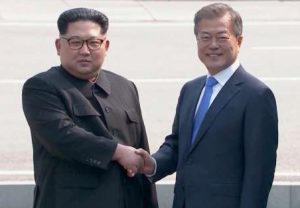North Korean defectors say unification requires closing a huge cultural chasm
When Ken Eom first arrived in South Korea, he had to get used to hearing a lot of stupid questions. “Is there alcohol in North Korea?” people would ask the former North Korean soldier, who defected in 2010, aged 29. “If people were so malnourished, and couldn’t get rice, why didn’t they just eat ramen?”
The experience was alienating. It was “like they thought I was from an Amazon tribe,” he told CNN.
Now, a historic meeting between North Korean leader Kim Jong Un and South Korean President Moon Jae-in has brought the Peninsula closer together than it has been in years. While many South Koreans welcome warming ties between the two countries, deep suspicion of Pyongyang’s intentions and hostility to the Kim regime remains, not least among the small but substantial community of defectors living in the South.
The chasm Eom feels with his southern compatriots, almost nine years after making his hazardous journey, shows that the matter of unification, and what it means for people on both sides of a border far stronger and less permeable than the Berlin Wall ever was, remains unclear.
Travis Jeppesen, a longtime North Korea watcher, said “(There needs to be) an acknowledgment of the vast differences that have emerged in the two societies since the division began in 1945…” he said.
[CNN]

 The leaders of North and South Korea embraced on Friday and pledged to work for the “complete denuclearization of the Korean peninsula” on a day of smiles and handshakes at the first inter-Korean summit in more than a decade.
The leaders of North and South Korea embraced on Friday and pledged to work for the “complete denuclearization of the Korean peninsula” on a day of smiles and handshakes at the first inter-Korean summit in more than a decade.